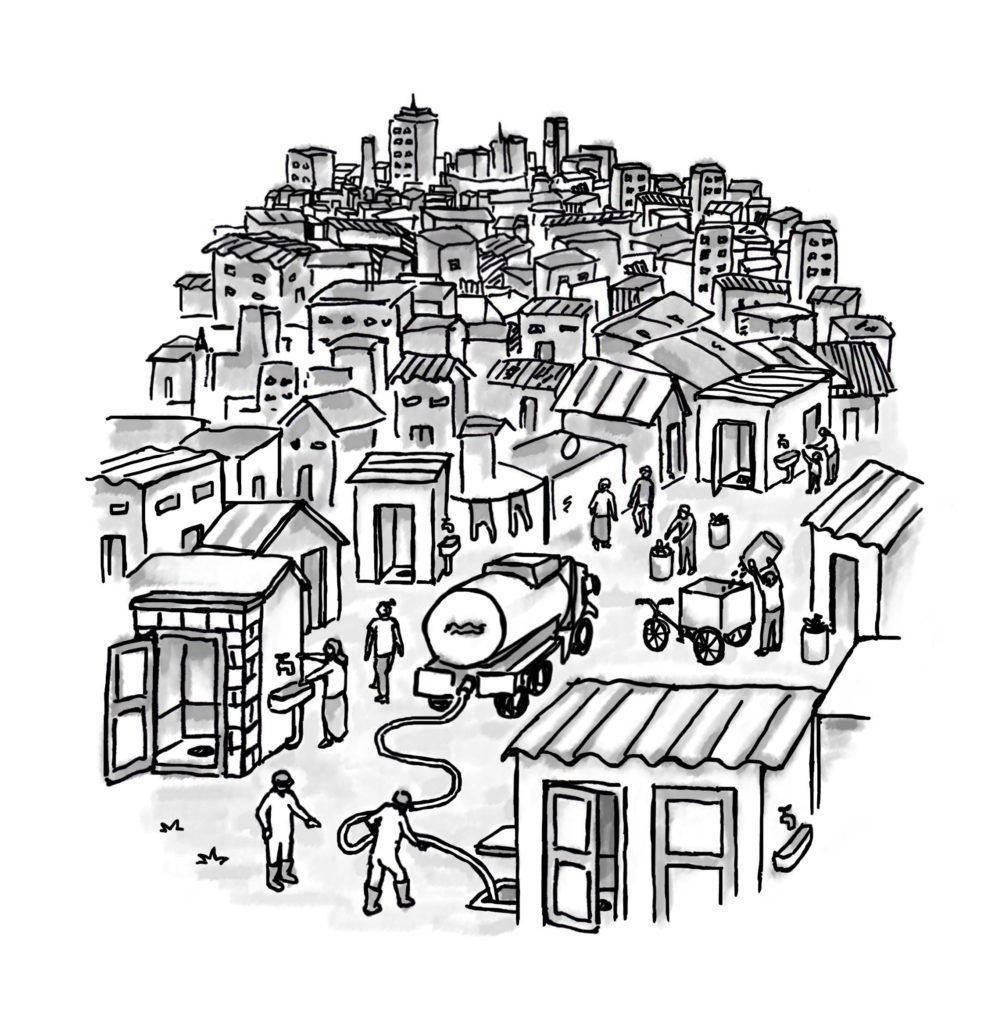Exposure to faecal matter occurs due to breakdowns across a sanitation value chain. This includes not only the containment of excreta and faecal sludge but also its storage, emptying, transport, treatment and disposal/reuse – this is more pressing in denser urban environments.
Attention needs to be placed on services, service providers, broader development plans and regulatory frameworks, all of which will involve multiple stakeholders at various institutional levels. A faeces-free environment requires:
- Everyone using a safely managed sanitation facility which is connected to a safe and appropriate Faecal Sludge Management (FSM) chain.
- Affordable sanitation services are available for all sectors of the population, irrespective of where they live and work.
- Access to and use of clean, appropriate and affordable toilets in households, communities (where household toilets are not possible), public places and institutions.
- Mechanisms to support services and activities to build site-specific containment systems suiting social contexts.
- Clear, established systems for desludging and transportation accessible to all with safe procedures for disposal of faecal sludge.
- Functional technologies for safe treatment and disposal.
- Proper training and protective equipment accessible to all sanitation workers across the sanitation value chain.
The sanitation service chain has been less discussed in rural areas which have focused on containment. Ideally, sludge can be kept in the ground and buried however some facilities constructed in rural areas may also need emptying at some stage.






